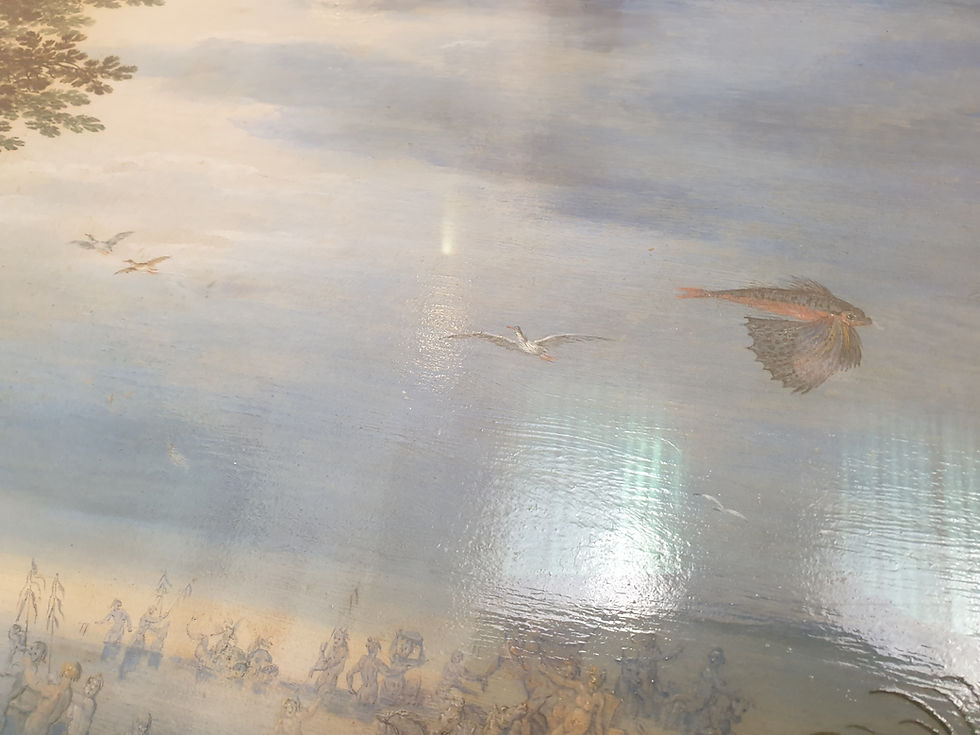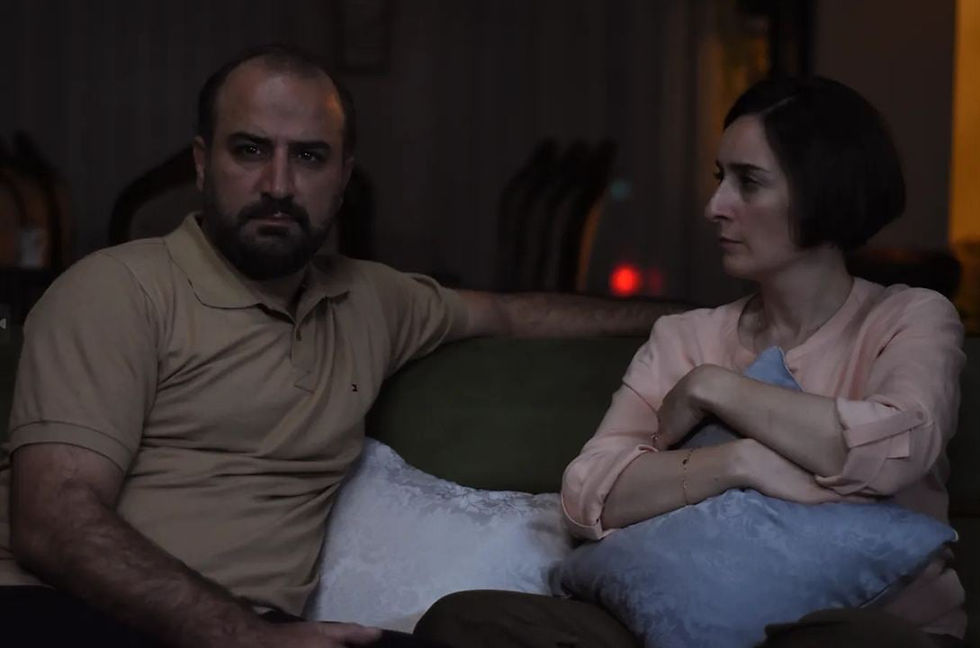AT VISIONS DU RÉEL 20 YEARS AGO: LOVE-LOVE-LOVE
- Marina Drozdova

- Apr 3, 2024
- 5 min read
Updated: May 27, 2024
In a few days International Documentary International Film Festival Visions du RÉEL will start its work in Nyon, Switzerland.
Once it was a special edition of the festival - in 2004 – which surprisingly was devoted to such an elusive theme as love. Participants of Visions du Reel programs presented films about their love. Loved, loved, lost, lost, lost, lost, cried... and filmed.

The good news came during the Berlinale IFF. The Young Film Forum screened the lovingly assembled special programme 10 Real Stories from Free South Africa. This was Berlin's way of celebrating the decade of democracy in South Africa. Visions repeated the South African programme: about half of it - small, modest, rather low-budget, but masterpieces. And what is even more surprising is that all of these films are about what the directors love, or what their characters love. All ten stories are about very personal things.
Even if it's a portrait of an entire country. Halo Matabane's Story of a Beautiful Country. The director and cameraman are travelling in a minivan, they cross their country from South to North and shoot their road movie. Along the way they meet different people. And the director asks them, different people, essentially the same questions: what they think about their country, about freedom in South Africa, and what freedom means to them in general. He invites some people to sit next to him and to film if they want - there should be equality between the subject and the object of the film. Someone he won't ask any questions at all. Someone will just play music in the minivan - that's not an answer to all questions... Someone will sing - like a choir of children at a lonely church on the side of the motorway. But someone will answer the questions, sincerely telling about what he/she has experienced.
A married couple, a black rocker and a white Afrikaner woman will tell their love story, a story of racism and passion. And a white farmer with a gun and obviously incredible energy in his soul - with even aggression. And it will become clear - the farmer's pressure comes from the idea of "white" colonisation, but his energy is "Afrikaner", native South African, and his heart is kind, and he shows pictures of his children with such tenderness. Bu what's really inside his soul...The country has changed, and for the director, all these people are, in the broadest sense of the word, fellow travellers.
In his own artistic way Matabane "translates" his love for South Africa. The expression of the complexity of this relationship is entrusted to different people/characters. And there is a balance-equity here: the director uses an open technique - the camera never "steps out" of the minivan. Vice versa - the characters enter Matabane's world, they let the camera understand a lot about them - through its optics. And we will see: in a free improvisational jazz rhythm and with the back stage of landscapes and being accompanied by different voices a new country takes shape; its ideals and a common, truly national idea grows up - an exclusively international one in fact. Epic in conception, The Story of a Wonderful Country is one of the most intimate film narrations we've ever seen.
Another example.
A big black woman opened a beauty salon in the Jewish neighbourhood of Johannesburg many years ago, just after the abolition of apartheid. Refined white ladies were used to go to Ivy's salon - and film director Andrea Spitz was among them. But at some point she realised that somehow, in between, fat black Ivy became a good friend to all of them, and her salon was a kind of club where they forgot about "white domination", where the rules of social behaviour prevailed over the rules of hot waxing on those surfaces of a woman's body on which "hair removal is undesirable", and where you can bring your ancient grandmother - let her sit and suggest her a pedicure while her granddaughter is away on business. And having realised this amazing thing, Andrea Spitz decided to make Hot Wax - the film about a strong and sincere woman who is always a leader. The film is ultimately about the director's admiration for her heroine.
Another story.
Roger, the owner of a small shop in an old Montreal neighbourhood, is forced to sell both the shop and the flat above it, where he was born, in order to pay for his old mother's stay in a special nursing home for Alzheimer's patients. He prepares to leave, but still habitually counts the multi-coloured sweets in jar-columns on the counter, still welcomes regular visitors, still sees the face of Jesus behind the cupboard door in a random pattern of brickwork... Yes, no one but Roger sees him. Roger will ask the director: well, do you see it? He will stare at the wall for a long time, then he will go out from behind the camera and come closer, but still he will not see Jesus at the bricks... Only the camera will move a little and we will notice a hint - next to the door of the cupboard, behind which is God, hangs a canonical image, a reproduction of something from the Renaissance....He has lost the mate, who lived for seventeen years with cancer, but when hw was asked if he misses her, he readily replies: No, not at all! and adds: - She is always with me. Close by. You know, like a cloud. And at that moment, any viewer of the film "Roger Toupin's Shop" by Benoit Pilon will surely catch their breath. Then it will happen again, when Roger, already bankrupt, comes to the room where his shop used to be, and says confidentially to the director: You know, I've stopped seeing Christ on that wall.
And once again the viewer's breath will be taken away, already at the very end of the film, when he sees Roger, dead frozen with a fishing rod in a boat…In a place, where, as he says, once it was so much fun....
If you count scrupulously, you'll catch your breath six times, no less, while watching The Shopkeeper.
Apart from the already mentioned ones - when his old friend Nestor, an anarchist and God-fearer goes to Tupen's house for a traditional tea party. He rides down the street so rockerishly, the wind is in his waving grey hair... Probably, he drives furious Harley... But no, the camera lowers the "look" and we see only a bicycle… But there is the protest in his every gesture, in his masculine irresistibility and male determination, and the wind and the autumn light through the leaves - all of these nuances are in one frame, in one admiring frame... And all of this - in the absence of the Harley, in the presence of the bicycle - is such an unbearable sadness of a life lived, but, probably, never lived?..
And then the old taxi driver, who was also a regular at the shop, would be forced to move to a new neighbourhood. He will cry, saying goodbye, and it will be difficult not to cry in unison ...
It's completely incomprehensible how one film can have so much... no, not catharsis, just genuinely tenderness.




Comments